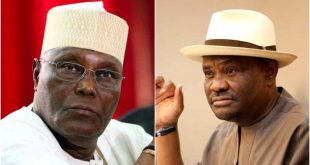 Jonathan’s government has announced austerity measures in Nigeria as oil price slide from $100 to $80 globally. One of the effects is heavy taxation on Alcoholic beverages which will lead to increase in price.
Jonathan’s government has announced austerity measures in Nigeria as oil price slide from $100 to $80 globally. One of the effects is heavy taxation on Alcoholic beverages which will lead to increase in price.
The decline in the price of crude oil may have started taking its toll on Nigeria as the Federal Government on Sunday announced measures aimed at cushioning its impact on the economy.
The Minister of Finance and the Co-ordinating Minister for the Economy , Dr Ngozi Okonjo-Iweala, announced this Abuja while addressing journalists on the Federal Government’s response to the crisis in Abuja on Sunday.
The measures which will see Nigerians paying tax on luxury goods, the nation would be experiencing a challenging time owing to the global fall in oil prices.
The other measures, according to her, are a reduction in public expenditures and international travels by public servants.
As part of the efforts to reduce expenditure, she said international travel within the public service would be severely curtailed,
“We are not talking about (cutting) salaries and benefits. We are talking of trainings and travels and these will be only for critical and essential items which will be pre-approved by the Head of Service and the Director-General of the Budget Office and then if someone invites you for overseas course, you can go provided they pay for your training and your stay and you have to furnish evidence that they are paying
“The drop in oil prices is a serious challenge which we must confront as a country. We must be prepared to make sacrifices where necessary.
“But we should also not forget that we retain some important advantages such as a broad economic base driven by the private sector and anchored on sound policies.
“Our strategy is to continue to strengthen the sectors that drive growth such as agriculture and housing while reducing waste with a renewed focus on prudence.”
She stated that the decline in oil prices had given additional impetus to the Federal Government’s focus on increasing non-oil revenues.
In this regard, the collection target for the Federal Inland Revenue Service, which has been working with Mckinsey to increase receipts will be revised upwards for next year.
Se said the country had recorded good success in reaching the initial target set this year of N75bn; noting that so far N65bn of this had been collected.
For 2015, the minister put the revised target at N160bn above the 2014 base.
Okonjo-Iweala also unveiled plans by the government to introduce what she called “tax on luxurious goods,” stating that this was a part of measures aimed at increasing revenue from non-oil sources.
She said that users of luxurious items, such as private jets, yachts, alcoholic beverages and expensive cars, would be required to pay special taxes for such goods.
The minister, who said the government was still compiling the list of luxurious goods to be taxed under the new initiative, assured that the proceeds from these items and services would be used to support the economy from external shocks.
She said, “We all know the definition of luxury goods, we are still compiling the lists and one of the things we can tax is champagne, alcoholic beverages, jets, luxury cars- we will look at the engine capacity, and yachts.
“We are putting the list together but we intend to do a surcharge going forward on these items.
“The principle is that those who are better off in the society and I hope they won’t mind will be willing to share a bit more in remitting a little bit more to the treasury than what they normally do .
Rejects calls to print more Naira
On calls from some quarters that the Federal Government should respond to the decline in revenues by printing more naira to fund projects, the minister said that such recommendations would be disastrous for the country if implemented.
Okonjo-Iweala , who argued that such prescriptions ignored the elementary principles of economics, said “printing money without adequate revenue support will lead to serious consequences for the country.
“It will spur inflation as the experiences of Germany in the early part of the last century and more recently, Argentina and Zimbabwe demonstrate.
“This prescription will victimise the poor and the middle class that it is supposedly protecting.”
She explained that the best way to protect the interest of the ordinary people was to control inflation as much as possible, expand the economic base, strengthen the sectors that drive growth, boost critical infrastructure and create more jobs.
The minister added, “We have already started doing that, the results are already coming but we still have a lot of work to do.
“To show how serious government is about job creation, President Jonathan will tomorrow, (Monday) November 17 launch the 4th edition of YouWin to support another 1,500 entrepreneurs along with a private equity fund for entrepreneurs.
“That is an expression of government’s commitment and seriousness to job creation.”
The implementation of the new mortgage system, including the current processing of over 66,000 applicants for mortgages, according to her, will go on as planned.
This, she added, would help to ensure that the country reaps the strong benefits that will come from unleashing the housing revolution which is attracting serious interest from local and international investors.
Also, unaffected are public sector wages as well as key initiatives in education, health and other areas critical to the country’s human development.
Meanwhile, financial experts have said that Nigerians should be ready for a harsh economy in the nearest future as a result of the continued fall in the prices of oil.
The experts, while reacting to the measures adopted by the Federal Government, stated that the decline was only the beginning.
They spoke with our correspondents during separate interviews on Sunday.
A renowned economist and Chief Executive, Financial Derivatives Company, Mr. Bismark Rewane, stated that the step by the government was a good start, but wondered if the measures would actually cushion the impact of the falling oil prices.
He said, “That is a good start. The most important thing is the fact that the government has come to accept that it has to do something with respect to the falling oil prices. What we are seeing now is not a short-term phenomenon. Whether the therapy is adequate is another issue. But I think it is a good move and it has not ruled out other moves.
“On the $2bn withdrawal from the ECA, I don’t think that will make any impact. The reality is that we have to look at what is important. And what is important is that the Nigerian government has come to terms to the fact that it has to start austerity. So it is encouraging and this is the beginning of a number of steps to be adopted.”
On whether there might be more measures, Rewane said, “Certainly, this is just the beginning. And I will like to say that it will be good for Nigeria to accept the reality on ground presently.”
Also, a former President, Association of National Accountants of Nigeria, Dr. Samuel Nzekwe, said the government’s resolve to adopt austerity measures was not surprising.
He said, “About 80 per cent of our earning is from oil and so it is not a surprise that the government is adopting austerity measures considering the fact that oil prices are falling. This is actually the beginning o things to happen. Apart from imposing tax on luxuries, they should look at how to diversify the economy by creating enabling environment so that industries can thrive.
“Increasing or taxing more utilities is not the major solution. The government should now make more efforts to diversify the economy. They should make concerted efforts to ensure that the agricultural sector and a few others are working.
“Nigerians may not worry much about the tax issue because it is expected but this tax should be used wisely. It should not end in the pockets of a few individuals because since the country’s earning is mostly from oil, it means a fall in the price of this commodity will deny Nigeria a lot of income to build roads, power plants and many other things that will benefit the ordinary Nigerian.”
The All Progressives Congress, through its National Publicity Secretary, Lai Mohammed, described the proposed austerity measures as a reflection of the massive corruption inherent in the Jonathan-led Peoples Democratic Party government .
It argued that it was unfair for the Federal Government to subject Nigerians to austerity measures after frittering away the “petrodollars accruable to the country in the last 15 years.
 YouNewsng Discover. Succeed. Enjoy
YouNewsng Discover. Succeed. Enjoy







